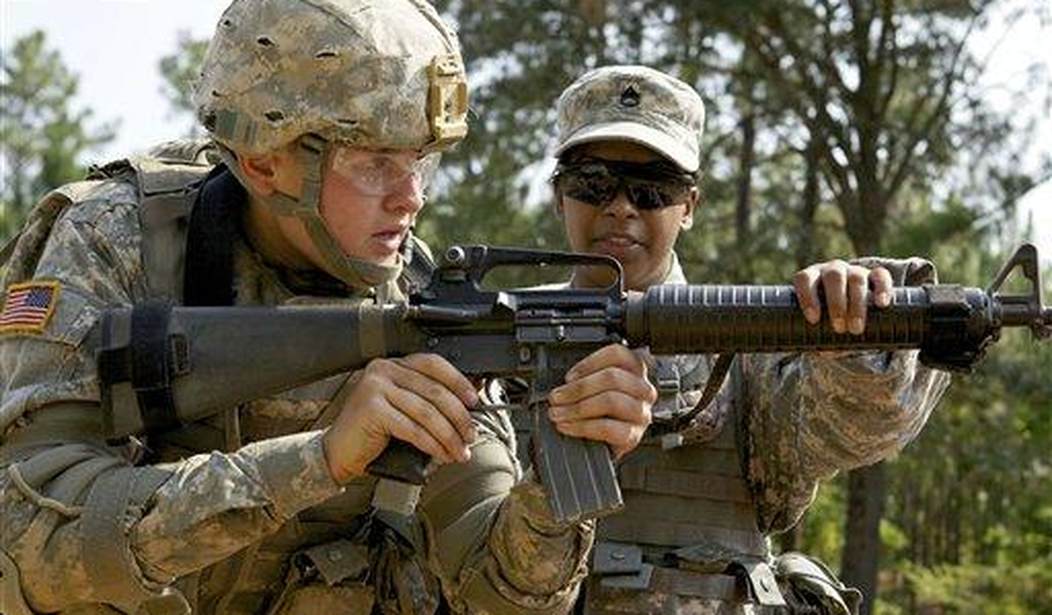Top News
The military recruiting crisis continues apace

They can’t just keep blaming this on the pandemic, though they will certainly try. All branches of the American military are on track to miss their recruiting goals again this year except for the Marines and Space Force. Some will once again miss by significant margins. This is all happening at the same time that China has expanded its standing military to a force of more than two million. That’s more than half a million more than America’s forces. There are a variety of factors driving this slowdown in the United States, but as the Wall Street Journal reports this week, one of them is a “family affair.” Young people are not being encouraged to pursue military service, even by their own family members who are veterans in many cases. (Subscription required)
The children of military families make up the majority of new recruits in the U.S. military. That pipeline is now under threat, which is bad news for the Pentagon’s already acute recruitment problems, as well as America’s military readiness.
“Influencers are not telling them to go into the military,” said Adm. Mike Mullen, the former chairman of the Joint Chiefs of Staff, in an interview. “Moms and dads, uncles, coaches and pastors don’t see it as a good choice.”
After the patriotic boost to recruiting that followed 9/11, the U.S. military has endured 20 years of war in Iraq and Afghanistan with no decisive victories, scandals over shoddy military housing and healthcare, poor pay for lower ranks that forces many military families to turn to food stamps, and rising rates of post-traumatic stress disorder and suicide.
The Army is projecting that it will only field 50,000 recruits out of its target of 65,000. The Navy expects to fall 10,000 short of its goal of 38,000. Even the Air Force, normally an overperformer in this category, is projected to miss its goal of 27,000 by 3,000 recruits.
Currently, 80% of the new recruits coming into the armed services have a family member who is either currently serving or previously served. But that number is declining. The WSJ quoted a number of veterans who are not encouraging their own children to enlist. If you ask them why, the country’s disastrous withdrawal from Afghanistan will be cited by more than a few.
But there are other factors involved. Some are rather mundane, such as the tight labor market that offers plenty of other opportunities for young people that don’t involve foreign adversaries trying to shoot you or blow you up. The low pay for enlisted people doesn’t help much either. The word has clearly gotten around that a significant percentage of military families are currently on food stamps or utilizing other supplemental programs to feed themselves. But there’s something more than that happening.
“It’s not like it used to be.” That’s what a friend and fellow veteran said to the teenage daughter of one of our neighbors last week. The military has simply changed. Part of it is the wokeness factor, no matter how much the current administration tries to deny it. Standards are being lowered. The whole idea of “Be All You Can Be” seems to have faded.
Unfortunately, the incoming generation of high school graduates has changed as well. Not as many kids are growing up dreaming of being G.I. Joe or G.I. Jane. A growing wave of progressivism is producing fewer young people who are raised to be proud of their country and prepared to serve. Fighting in America’s wars is something that “other people do.” The problem is, we’re running out of those other people. And looking at the current state of affairs around the globe today, it couldn’t be happening at a worse time.
Read the full article here

-
Uncategorized3 days ago
The Surge of Crypto Slots: A New Period in Online Pc Gaming
-
Uncategorized3 days ago
Kəşf Etmək Binance Coin Kazino Saytları Dünyasını
-
Uncategorized3 days ago
The Increase of Dogecoin Casino Sites: An Extensive Introduction
-
Uncategorized3 days ago
High Roller Online Casinos: Inside the Globe of Elite Betting









